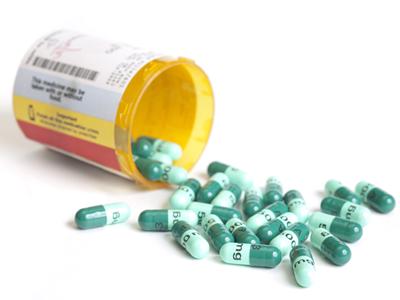Steroids not effective for chest infections in adults who don’t have asthma or other chronic lung disease

Oral steroids should not be used for treating acute lower respiratory tract infection (or ‘chest infections’) in adults who don’t have asthma or other chronic lung disease, as they do not reduce the duration or severity of symptoms, according to a new study published in the journal JAMA.
In the study, carried out by researchers at the Universities of Southampton, Bristol, Nottingham and Oxford, 398 non-asthmatic adults with acute chest infections − but no evidence of pneumonia and not requiring immediate antibiotic treatment − were randomly split into two groups, one receiving 40mg of the oral steroid ‘prednisolone’ for five days and one receiving a placebo over the same time period.
The team found there was no reduction in the duration of cough, the main symptom of chest infections, or the severity of the accompanying symptoms between two and four days after treatment (when symptoms are usually at their most severe) in the prednisolone group compared with the placebo group. The results suggest that steroids are not effective in the treatment of chest infections in non-asthmatic adult patients.
Professor Michael Moore, a study co-author from the University of Southampton, said: “Oral and inhaled steroids are known to be highly effective in treating acute asthma as well as infective flares of other long-term lung conditions but need to be used carefully because of the risk of unwanted side effects. We chose to test the effect of steroids for chest infections as some of the symptoms of chest infections, such as shortness of breath, wheeze and cough with phlegm, overlap with acute asthma. However, we have conclusively demonstrated they are not effective in this group of patients.”
Professor Moore said that alternative methods of treating chest infections should be found to reduce the amount of antibiotics being used to combat anti-microbial resistance, which is considered a global health crisis. It does not look as if steroids are the answer, he said.
A recent study, led by the University of Southampton, showed that Andrographis Paniculata (A. Paniculata, Chuān Xīn Lián), a Chinese herbal medicine, appears beneficial and safe for relieving chest infections symptoms and results in a speedier recovery.
The systematic review, published in PLOS ONE, assessed data for 7,175 patients across 33 trials in six countries, which evaluated the effects of relieving chest infection symptoms, particularly cough and sore throat. It showed that A. Paniculata improved severity of cough and sore throat when compared with placebo and had a statistically significant effect in improving overall symptoms when compared to placebo, usual care, and other herbal therapies. Evidence also suggested that A. Paniculata (alone or plus usual care) shortened the duration of cough, sore throat and sick leave/time when compared to usual care.
Professor Moore said: “It is clear that most of the time antibiotics have very limited impact on the symptoms from chest infections, so the search is on to find alternative approaches to provide symptom relief. Andrographis appears both safe and helpful in this area. More needs to be done to find alternative treatments to antibiotics if we are to get ahead of antibiotic resistance, which is increasing at an alarming rate. Herbal remedies could have a potential role to play.”
